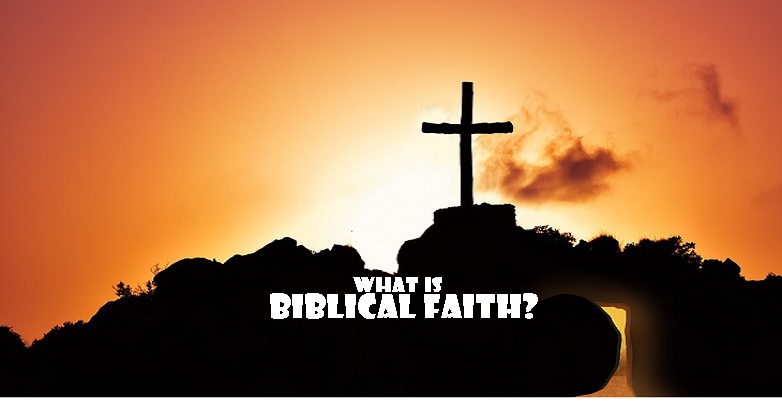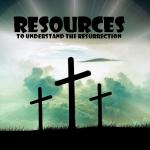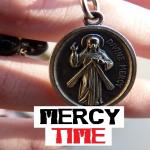
Easter Sunday’s Gospel presents faith or “being faithful” in a very different way than most American Christians understand it.
What does it mean in Easter Sunday’s Gospel reading (John 20:1-9) when the Narrator comments parenthetically, “For they did not yet understand the scripture that he had to rise from the dead.”
Hold up… one verse before, we read this—
John 20:8
Then the other disciple also went in,
the one who had arrived at the tomb first,
and he saw and believed.
This “Other Disciple,” except for God and Jesus, is the most important character in this Gospel—see John 1:35-40; 11:3-5; 13:23-25; 18:15-16; 19:25-27; 20:2-10; 21:7; 21:20-24).
If “the other disciple” (John Lazarus) “saw and believed,” how could he not yet understand the scripture about Jesus’ being raised? That doesn’t make any sense! At least not for American Christians.
Actually, it makes a whole lot of sense for our faithful Mediterranean ancestors.
Faithful, Yet Clueless??
Western 21st-century Christians must grapple with this seemingly bizarre contradiction. The other, faithful disciple “believes” (John 20:8)—but he and the others did not yet realize this had to transpire (20:9). Despite being clueless, he “saw and believed!”
Western commenters often rely on mental gymnastics to remove the conundrum. Maybe “they” does not refer to faithful Lazarus, but only Peter and Mary Magdalene? No, that won’t do. “They” includes the Beloved Disciple, Lazarus, also.
The problem for U.S. Christians who take the passage seriously lies in how they understand “faith” and being “faithful.” Recall what I repeat on this blog, ad nauseam—the Bible is a Middle Eastern library about Mediterranean people. It sees “faith” in a Mediterranean way, not the way Americans see things. In contrast, U.S. Christians see faith the way Western culture does. Consequently, misunderstanding and distortion of Sunday’s Gospel results.
Being Faithful VS American Rationalism
Generally speaking, Western culture is hugely rationalistic. That’s very true of U.S. culture, in particular. This colors how American Christians perceive, think about, understand, and communicate faith.
Therefore, to us Americans, faith is primarily intellectual assent. As such, it demands the word of authority, especially when evidence is either weak or absent.
To taste this:
- Consider how effective the placebo is in American medicine.
- Dress up an actor in a white lab coat and take him into a university auditorium filled with successful American lawyers, “smart, educated people,” and executives.
- Watch them pour out their trust onto this “deserving” and “qualified” expert as he administers a cure-all placebo.
The Faithful Other Disciple
Consider the Beloved Disciple Lazarus’ faith (“…he saw and believed…”) in light of the Gospel scene. Did any angelic authority inform Lazarus about what happened and what the empty tomb meant? Nope. Did any authority? Negative also. Then how in the hell did he see and believe? How puzzling this is!
Just don’t forget—the Beloved Disciple wasn’t American. He, therefore, wasn’t an American “believer.”
But take a moment to imagine that he was American. Things would probably have gone down quite differently then. What evidence does he have? And what authority figure is there to fill him in? He arrives at the empty tomb and sees the wrappings. What expectation could there be besides people stole the body, like Mary Magdalene suspected (John 20:2, 13, 15)? It’s a terrifying, troubling discovery!
What would American “believers,” in the face of this evidence (and without a memorized Sunday school script), do? Would they respond as Mediterranean Lazarus does? How could there be any “seeing and believing” for us Westerners? Let’s face it, folks—we are most likely to respond in light of such a troubling discovery and tragic series of events by jumping off the bandwagon!
Faithful Enzo
To understand what it means that the Beloved Disciple “saw and believed,” watch the following scene from The Godfather. Enzo the Baker owes a debt to Don Vito, his Patron. Don Vito is clinging to life in hospital following an almost successful hit. Now, assassins are coming to finish the Godfather off.
Who could blame poor Enzo for taking cover, leaving what is probably an inevitable doomed situation? He’s no bodyguard or killer, just a simple baker! But running away and leaving his fictive father Vito isn’t an option for the faithful baker. Therefore Enzo stays, willing to lay down his life for his beloved Patron. That is Mediterranean biblical faith. It’s not intellectual belief, but Godfather-style loyalty and solidarity.
Therefore, whenever you see the words “faith” and “belief” in your Bible, you might want to scratch them out and write in “loyalty.” And recall The Godfather when you do.
Biblical Faith = Loyalty
In the Bible, faith means loyalty and reliability. It means being faithful. In other words, you can be counted on in your interpersonal commitments and relations. Thus, you are enduringly loyal, even to the death. Ultimately, this is the Godfather-style loyalty of Enzo, the Beloved Baker, and Lazarus, the Beloved Disciple.
And this is the loyalty or faithfulness God shows the faithful Jesus-groups (1 Corinthians 1:9; 10:13; 2 Corinthians 1:18; 1 Thessalonians 5:24; see 2 Timothy 2:13; Hebrews 11:11).
Faithful Jesus demanded this personal and ingroup loyalty to himself and to his project of renewing Israel in Theocracy (Mark 9:42; Matthew 18:6, see also Matthew 11:28–29; Mark 15:32; Matthew 27:42). Stay loyal, says Jesus! Never be a Fredo with Jesus! Otherwise, you’ll be treated like Fredo when the Sky-Vault Man comes (Mark 8:38//Matthew 16:27//Luke 9:26). No other commitments supersede Jesus and his project (Luke 14:26//Matthew 10:37–38).
Being Faithful & Social Glue
Therefore, in the Bible, the meaning of “faith” comes from a social glue. This also applies to “belief,” “fidelity,” “faithfulness,” “to have faith,” and “to believe.” That social glue binds Mediterranean people together, makes them faithful, just like Enzo was to Michael Corleone and the Don. The bond is solidarity and commitment and is very public, manifested externally in the social world. Emotionally it is loyalty. That is the biblical faith of the faithful Beloved Disciple outside the empty tomb.
Because the interpersonal glue of biblical faith is social, it works in ingroup attachment (biblical or Mediterranean “love”) and group allegiance or trust (biblical or Mediterranean “hope”). Understood correctly, you’ll never read 1 Corinthians 13:13 like an “ugly American” again.
So LOYALTY,
PUT-ALL-THE-EGGS-IN-ONE-BASKET-TRUST,
INGROUP GLUE remain,
these three;
but the greatest of these
is INGROUP GLUE.
Therefore, following Bruce Malina and John Pilch, biblical or Mediterranean “faith” means Godfather-style loyalty, reliability, and commitment to another person and the group you share. Faithful Lazarus at the Empty Tomb was all that. While we Western Catholics obsess over correct beliefs and doctrines, what Lazarus intellectually assented to didn’t matter very much to our biblical ancestors in the Faith. For them, faith was all about loyalty and enduring group cohesion. It was their best defense against the hostile dominant society (“the world”) surrounding them.
“Thoughts and Prayers!”
Even though the Beloved Disciple did not understand the troubling evidence, he “saw and believed,” just like Enzo the Baker. He remained faithful.
Seen that way, what happens to the American Christian expression “thoughts and prayers!”? Think about how it gets offered every time black lives don’t matter in this country. Or consider how it gets flung out when dozens of school children are mowed down due to insane people firing military-grade arsenals into schools. It becomes pretty hollow, no?
What do American Catholics and other believers make of this culturally plausible explanation of Easter Sunday’s Gospel? Biblical faith is primarily about the will, not mentally assenting to a litany of propositions. There is a moral limit to our verbal orthodoxy, friends. Our wealthy U.S. bishops, feasting in gala dinners and spending all their energies on courting donors, are sacramental testimony to the moral limits of verbal orthodoxy.
Be faithful, my friends. More to come, later…












